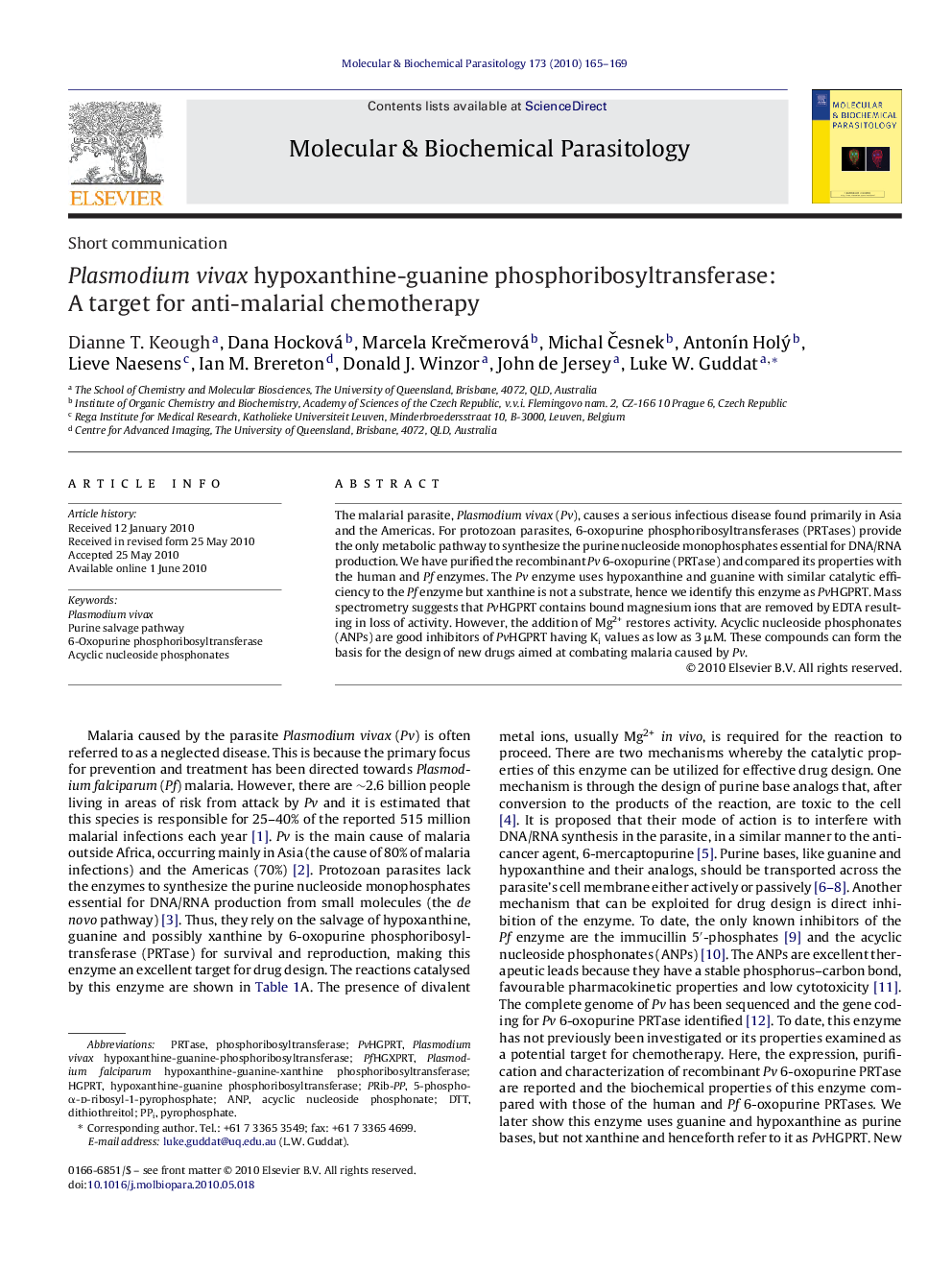| Article ID | Journal | Published Year | Pages | File Type |
|---|---|---|---|---|
| 5915764 | Molecular and Biochemical Parasitology | 2010 | 5 Pages |
The malarial parasite, Plasmodium vivax (Pv), causes a serious infectious disease found primarily in Asia and the Americas. For protozoan parasites, 6-oxopurine phosphoribosyltransferases (PRTases) provide the only metabolic pathway to synthesize the purine nucleoside monophosphates essential for DNA/RNA production. We have purified the recombinant Pv 6-oxopurine (PRTase) and compared its properties with the human and Pf enzymes. The Pv enzyme uses hypoxanthine and guanine with similar catalytic efficiency to the Pf enzyme but xanthine is not a substrate, hence we identify this enzyme as PvHGPRT. Mass spectrometry suggests that PvHGPRT contains bound magnesium ions that are removed by EDTA resulting in loss of activity. However, the addition of Mg2+ restores activity. Acyclic nucleoside phosphonates (ANPs) are good inhibitors of PvHGPRT having Ki values as low as 3 μM. These compounds can form the basis for the design of new drugs aimed at combating malaria caused by Pv.
Graphical abstractPlasmodium vivax causes a severe form of malaria. A target for new chemotherapeutics is hypoxanthine-guanine phosporibosyltransferase. This enzyme has been characterized and inhibitors discovered.Download high-res image (115KB)Download full-size image
